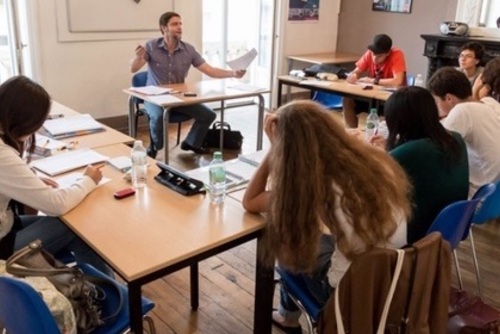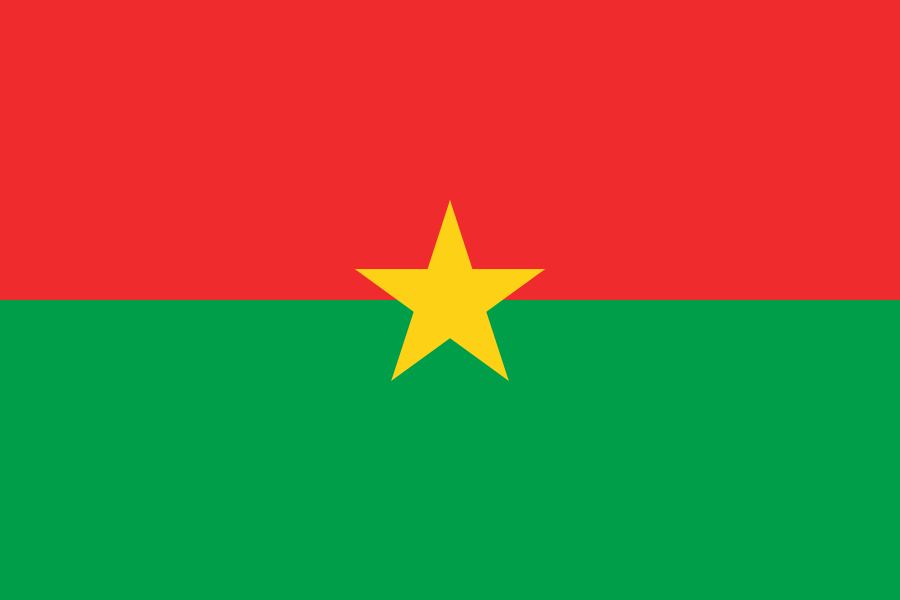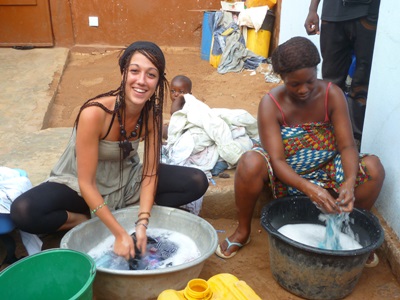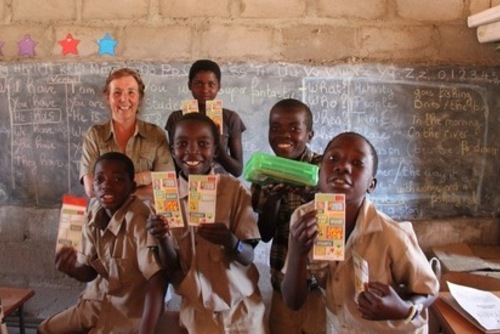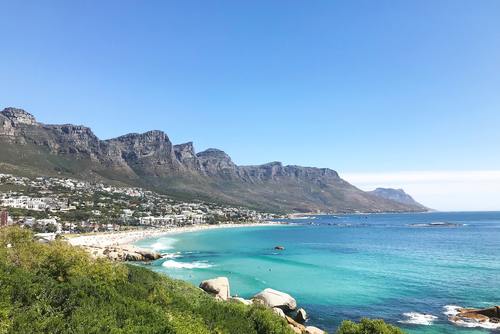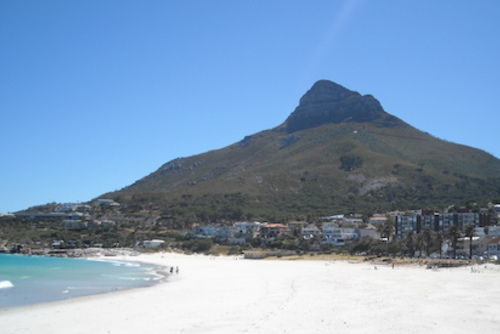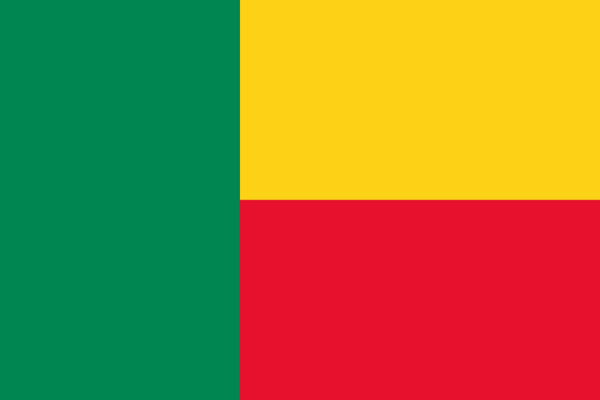
Benin Travel Guide
- Capital: Porto-Novo
- Currency: Communaute Financiere Africaine franc (XOF)
- Country Size: 112,600 km2
- Population: 7,863,000 (approx)
- Language: French + local tribal languages
- Dailing Code: +229
- Religion: 42% Christian, 24% Muslim, 17% Voodoun, 15.5% Other
- Language: French is official language. Fon & Yoruba is spoken widely in the South, six major tribal languages in the North
- Poverty Line: -37% of the country’s population lives below the poverty line
- Interesting Fact: You can marvel at the nation’s most striking and best-known practice, one that has gained significant social and political power—Voodoo. On a visit to Pendjari park, see one of the last habitats of the Painted Hunting Dog, Lycaon pictus.
History of Benin
Originally, Benin was under the reign of Dahomey, an affluent West African empire. In 1872, the region was colonized by the French until it became an independent nation in 1960. By 1972 a sequence of military governments collapsed and Mathiew Kerekou came into power instilling a government with a strong base in Marx and Lenin philosophies.
The country was named Dahomey, after the tribe, until 1975 when it was renamed the Republic of Benin. Steps towards a representative government started in 1989, and a couple of years later a free election occurred and Prime Minister Nicephore Soglo was ushered in, establishing a transition of power from a dictatorship to a democracy.
Kerekou eventually stepped down, and Thomas Yayi Boni took over; although Yayi was a political outsider and an independent he has made the fight against corruption a priority and has been committed to the country’s economic development. If you would like to visit and want an authentic experience our holidays will appeal to you.
Weather & Best Time to Visit
Benin is tropical, hot and humid in the South, and semi-arid in the North. Dry season is from December to April.
Passport/Visa Requirements
- Is a visa required?: Yes
- Allocation of Tourist Visa: Before you depart
- Duration of Tourist visa: Up to 3 years
- Cost of Tourist Visa: Varies, but you can expect to pay $100
- Tourist Visa Extension: No
- Cost of Tourist Visa Extension: Not Applicable
- Passport validation: 6 months required before expiry
- Return/onward flight ticket: May be required
- Confirmation of Funds: May be required
Money/Currency
- Currency: West African CFA (XOF)
- Inform Banks: Give the dates of travel and destinations to prevent security blocks on your bank and credit cards.
- Cash: Always take enough cash to cover your expenses for the first week in case there is a problem with your bank cards or access to ATM’s is limited.
- Credit Options: Good idea to have at least two different credit/debit card options i.e. MasterCard, Visa, Maestro, or Cirrus.
- Travellers Cheques: Not recommended as they will be difficult to cash.
- Western Union: If at any time you have any problems in accessing money you can use Western Union transfer. Money can be sent from your home country and received in Benin the same day.
Top Things to See & Do in Benin
- Visit the National parks of Pendjari (in the North West) and The ‘W’ National Park (in the North).
- Hang out at the beaches, Grand Popo and Ouidah.
- Browse local markets in Cotonou (the Dan Tokpa), as well as in Boukombe in the northwest of the country; in the latter market you will find extraordinary pieces made by the Somba people, who live in this region.
- Ganvie is a lake village 11miles northwest from Cotonou; many of the houses there were built on stilts. Be sure to check out the water-market.
- The Temple of the Sacred Python and an old Portuguese fort, both worth seeing, are located in the town of Ouidah.
- Trek Mount Sokbaro, the highest peak at 658 metres
Travelling in Benin
If you would like to travel to Benin search our ideas for things to do including sightseeing, eco tourism & special interest activities.
Benin Gap Year
Benin is a safe destination to visit on a gap year but always keep up to date with latest news and check vaccinations prior to departure. We have a selection of programs which can be joined on a gap year - this will be the experience of your life if you are open to a new country and culture which is probably like nowhere you have been before.
Health
- Vaccinations: Yellow fever (and proof of vaccination) is required. All other vaccinations are recommended. You must contact your local health clinic or family doctor for any medical advice.
- Malaria medication: Recommended
- Other Medications: Before leaving you should visit your travel clinic or family doctor for information on other medications you may need while travelling.
View our Africa travel guide.
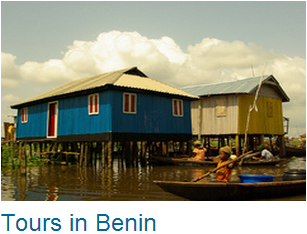
Related Pages
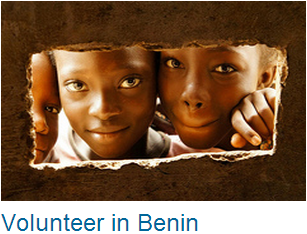
Major Issues
Benin has excess mortality rates due to AIDS, and therefore lower life expectancy, higher infant mortality, higher death rates, lower population growth rates.
Location of Projects
As a volunteer in Benin, you will usually live in Ouidah, the center of voodoo culture in West Africa and a previous centre for slave trading. Most programs are based in Ouidah which is a laid back and peaceful city full of history and culture. There are also combination experiences to be had, you could help communities, study French, teach or just travel. By helping local organisations and NGO's you will also be able to learn about development, education and community improvement initiatives which are bringing real benefit to local people.
Types of Programs
Educational and teaching projects are an effective way to make a hands of difference. In your spare time you could also study French which is a great way to interact with local people and improve the experience, classes can be joined in country and booked on arrival. Some other fun activities include learning to drum with local people - this is one of the local passions.
There are also placements at international centers for arts and music where you can help teach contemporary and/or traditional African dance to high school and elementary students. You will spend anywhere from 5-10 hours per weeks teaching your own class, and another 10-20 hours per week collaborating with local dance teachers to provide some extra one-on-one support for the children.
How to Apply
You might need to pay a fee to participate on some volunteer programs in Africa, this usually includes accommodation, meals and in-country support. There are free volunteer opportunities in Benin but we recommend you apply through an international sending agency which takes the hassle out of planning the experience. Accommodation is usually provided with either a home-stay or shared accommodation with other participants. If you have no previous experience of anything like this before don't panic, orientation is provided on arrival where you will learn more about your surrounds and duties. If you are based in Ouidah you will get free time to explore your surroundings.
Language Requirements
Intermediate French. This means being able to communicate confidently with the project staff and beneficiaries, both in written and oral communication. If you are not sure what level your French is, we have an online test to help you determine this. One-on-one French lessons in Africa can be arranged with local tutors to compliment volunteer placements. We can also advise you on French language courses pre-departure as well.
Structured Placements
You will get an in-country representative who manages aspects of your placement overseas including lodging, language lessons, organization placement, and country specific advice. Your exchange manager will usually be from West Africa and will have years of experience working alongside a number of NGOs in an administrative, financial and coordinator capacity. They will be able to speak English and also French.
During your volunteering abroad experience you exchange manager will arrange your collection from the airport, provide orientation, introduce you to your home-stay family and take you to meet your project contacts as well as providing on the ground support throughout your stay. Working as a local staff representative gives people the opportunity to be involved in the development of African life. They see the value in cultural exchange for all concerned and really enjoys meeting so many new people from different parts of the world. The most important goal for local staff is to give all volunteers an exceptional, original and memorable experience during their time in Africa.
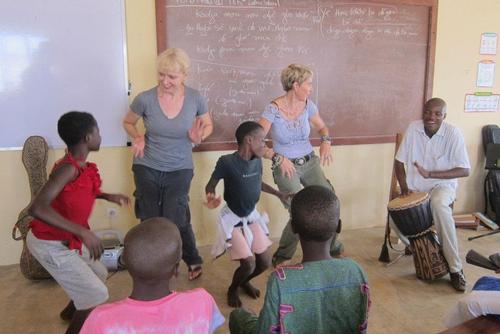
Benin Volunteering FAQ
Projects in Ouidah, where will I live?
You will live in a relatively new district called Gbena. It is safe and secure, and located near the main road to Cotonou. Internet cafes, markets, and the city centre are within walking distance.
How will I manage if I don’t speak French?
You will learn. In a very short amount of time you will learn the basics for getting around the city, buying your own food and taking your transport. Your Exchange Manager will assist you with this, and you will find you will build your confidence in speaking French in a short amount of time.
I have only one month and basic French. I would like to do volunteer activities that use my university education rather than basic activities like caring for children. Is this possible?
It will be unrealistic to meet this request. It is not that we are not willing to accommodate. Rather, if you have one month do volunteer activities which require administration, reading, writing, and speaking in French, but you don’t speak French, you will get frustrated. Think, for example, if a foreigner was to come into your workplace for one month and did not speak English. No matter how skilled this person is, he or she will not be able to share these skills in a language that you and your co-workers understand. If you are starting with basic French and have only one month, we would recommend volunteering with children, as an intermediate level of French (or having the time to learn more French) is not needed. Yet, you will have the opportunity to improve your French in this setting. Alternatively, if the work experience is a greater priority for you than learning French, we would recommend volunteering in a region where English is the working language.
How will I get around?
Shared taxis and moto-taxis are everywhere. We recommend taking shared taxis as they are safer. Moto-taxis are small motorbikes which take passengers around the city quickly.
Benin is the centre of of voodoo culture, should I be worried about this?
Voodoo, and the religion Vodoun, is practiced throughout Sub-Saharan Africa and is particularly strong in Benin, where it originated. The local people are tolerant of your beliefs and, as with other locally practiced religions, you only learn about it if you like. You will have the opportunity to attend voodoo festivals from time to time (generally no photos are allowed), peruse fetish markets, and visit local voodoo sites. Though westerners may associate it with negative connotations of black magic, it is simply viewed as another religious belief in Benin. It is a culture like any other that you have the opportunity to learn about if you wish.
What is the local food like?
The corn, rice, yams, potatoes, and plantains are the local staples. There are also many fresh vegetables like carrots, avocados, onions, hot peppers, tomatoes, and okra, as well as a variety of edible leaves that locals use to make sauces. Soups with fish or meat are common. One of the famous local soups is “Kpêtê,” an original soup with goat’s meat and blood. Baguettes are common and sold on almost every street corner.
Related Pages


